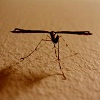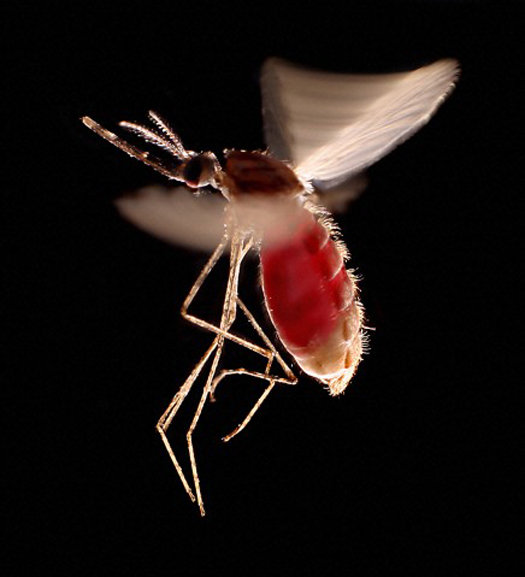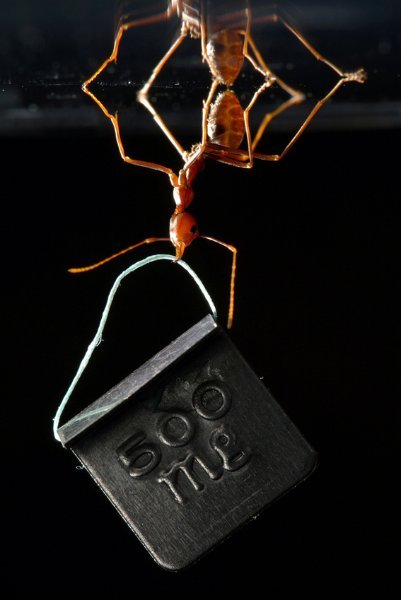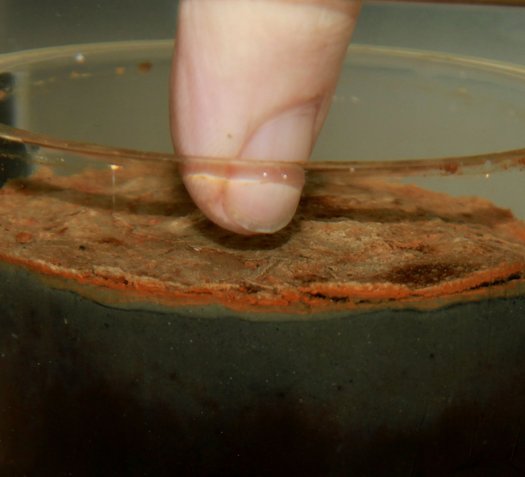Researching Stress, Scientists May Have Accidentally Found Baldness Cure
Image: UCLA/VA
more>>
Water Flea Genome is the Most Complex Yet, and May Help Scientists Study Organisms' Response to Stress
Image: Jan Michels, Christian-Albrechts-Universitaet zu Kiel
more>>

Israelis Trading Airport Security Dogs for Highly Trained Mouse Teams
Image: Wikimedia
more>>
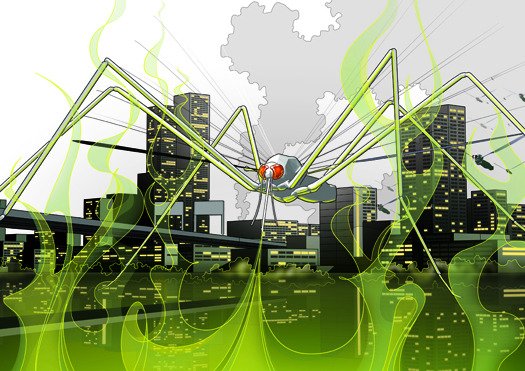
What Could Possibly Go Wrong: Genetically-Modified Mosquitoes
Image: Jamie Sneddon
more>>

Malaysia Releases 6,000 Genetically Modified Mosquitoes into the Wild
Image: CDC
more>>
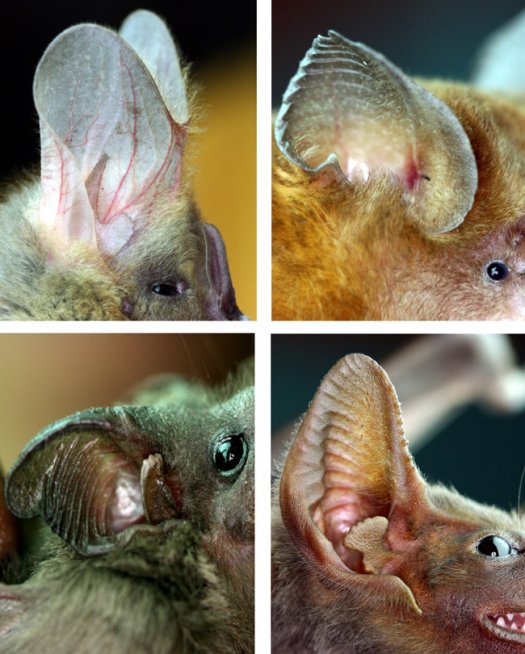
Bat Ears Could Inspire New Sensing Technology For Robots and Autonomous Vehicles
Image: Rolf Mueller/Virginia Tech
more>>
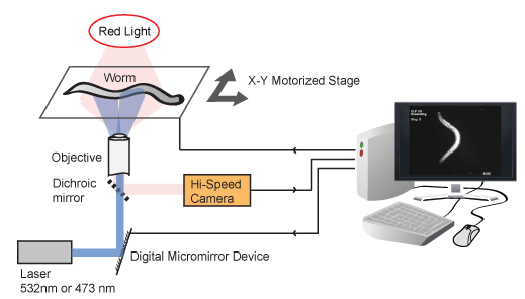
Harvard Scientists Control and Steer Live Worms Using Laser Light
Image: CoLBeRT/Samuel Lab/Harvard's Center for Brain Science
more>>

Fruit Flies' Neural Networks Solve Distributed Computing Problem Better Than Humans
Image via Carnegie Mellon University
more>>

New Genetically Modified Chickens Can't Transmit Bird Flu, Scientists Say
Image: Norrie Russell/Courtesy Roslin Institute
more>>

Frogs in Peril: A Race to Save a Threatened Frog With Risky Experimental Techniques
Image: Joel Sartore
more>>
22.02.11
Some of the greatest discoveries in science have been total accidents - Alexander Fleming's use of penicillin, Wilson and Penzias' discovery of the cosmic microwave background, etc. Today, scientists announced they've once again unintentionally made a monumental discovery:
Read more...
A microscopic, see-through water flea is the most complex creature ever studied, genomically speaking. Daphnia pulex is the first crustacean to ever have its genome
Read more...

Engineers are always looking for ways to pare down the size of technologies, and apparently that penchant for miniaturization extends to bomb-sniffing canines as well. Israeli researchers are trading in their dogs for mice trained in explosive detection, using teams
Read more...

Genetically engineered mosquitoes could even spread genes to other insects
As carriers for diseases such as malaria, dengue fever and yellow fever, mosquitoes are the deadliest creatures on the planet, responsible for millions of human deaths every year. And as the planet
Read more...

Over the protests of environmental groups and NGOs, Malaysia has released 6,000 genetically modified mosquitoes into the wild,
Read more...
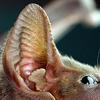
Bats - you know we love ‘em - have a remarkable ability to turn, swirl and dive on a dime while in mid-flight, dodging obstacles and grabbing food from the air. Engineers would like to give robots and autonomous
Read more...
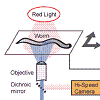
Researchers at Harvard have figured out how to manipulate the actions of nematode worms sans wires or electrodes, opening the door to a better understanding of how just a few neurons can influence behavior in animals. Scientists at the university's Center for Brain Science
Read more...

The burgeoning neural networks of fruit fly pupae solve a distributed computing problem, arranging sensory bristles in a very efficient, effective manner. Scientists who monitored the bristles‘ growth say they can mimic the flies' method to build
Read more...

They still get sick and die; they just can't spread the disease
Future chicken cutlets may come from birds that have been genetically modified to resist bird flu, after a breakthrough in Britain announced this week. Researchers have produced chickens that cannot
Read more...

Scientists douse frogs with experimental bacteria to halt mass amphibian death
For years, every time Vance Vredenburg visited his study area in Kings Canyon National Park in California, he tallied about 100 Sierra Nevada yellow-legged frogs. But in 2005, all the San
Read more...

The Pentagon's best (and best-funded) engineers have toiled for years, only to realize the supremacy of the canine schnoz
After six years and nearly $19 billion in spending, the Pentagon task force assigned to create better ways to detect bombs has revealed
Read more...

Ambitious researchers think they might be able to map the human brain in just five years, navigating the complex networks between neurons
Read more...

The "life is persistent" argument is often used to bolster the idea that life exists elsewhere in the universe. While that remains to be seen, the notion certainly keeps proving true here on the home planet. Scientists have found life thriving in near superheated ocean
Read more...

Capture a terrorist, eat a fish: it's all in a day's work for the US navy's latest terror-fighting weapon.
Specially trained marine mammals were the star attraction in a Governor Schwarzenegger-initiated anti-terrorist training session held at ports throughout California this week. One
Read more...

Diagnosing racing thoroughbreds can be like diagnosing an engine problem in a car; it starts with a vibration that might be imperceptible, but unchecked it can become a serious mechanical problem. It's very hard to tell if a horse has a slight hitch in its gait, but Danish
Read more...

Cocaine is a hell of a drug, but getting shocked with a Taser while riding high on methamphetamines probably beats any white-knuckled cocaine experience hands down. And that's exactly what happened to some lucky sheep in a new study that tested the effects of Tasers on meth-addled targets,
Read more...

Meet the Durrell's vontsira (Salanoia durrelli). It ain't pretty, but this small, mongoose-like critter-pronounced "voontseera"-has the distinction of being the first carnivorous mammal discovered in 24 years. The last was the related Grandidier's vontsira, which,
Read more...
Five South African rhinos have been outfitted with an extra layer of defense against poachers, thanks to a GPS chip implanted in their horns. The chips are inserted into a small hole drilled
Read more...

Remember earlier this month when the government said it thought only a quarter of the oil from the BP Deepwater Horizon disaster was still in the water? Think again. Two new studies conclude things are still quite dire in the Gulf, estimating not only that 79 percent of
Read more...
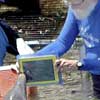
Steve Jobs promised us the iPad would change our lives, and while it hasn't been all things to all people - what about that front-facing camera, Steve? - the beauty of such a device is that developers (to the extent that Apple will allow them, anyhow) are free to get as creative as they want
Read more...
Popular Science has been a leading source of science, technology and gadget news since 1872. With up-to-the minute latest space news, insightful commentary on the new innovations and concept cars ...if it's new or future technology you'll find it at popsci.com.au.
WW Media - Popular Science © 2010
Cameras - Home Entertainment - Mobile Phones
Popular Science: breaking news, articles and media for Tech Savvy readers - rainforest, endangered, wild animals and much more.
The team at Popular Science has been the leading source of science, technology and gadget news since 1872. Launched in 2008 this Australian edition brings you in-depth articles, breaking news, media and videos from all around the world. Discover new technology, test drive the latest health and energy articles, keep up to date with the latest environmental news on climate change and global warming and explore the universe with our latest social science news.
Popular Science - Best New Earth Science, Popular Science Projects, Articles and News in Australia and New Zealand and from around the world, subscribe today!



























